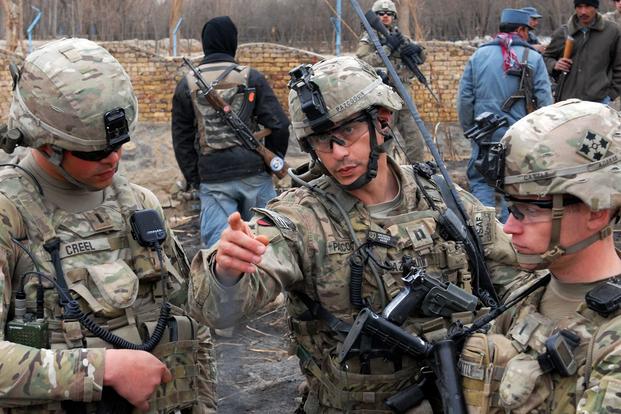The Army’s 4th Infantry Division based at Fort Carson, Colo., will send 2,800 soldiers to Afghanistan this winter and next spring in what could be some of the final deployments to that country if President Obama sticks to his current withdrawal plan.
Without giving specific deployment dates, the Army said Thursday that 1,000 troops from 4th ID’s Combat Aviation Brigade will be sent to Afghanistan sometime this winter. Another 1,800 soldiers from the 4th ID’s 2nd Infantry Brigade Combat Team will deploy to Afghanistan in the spring, the Army said.
“As part of the most balanced division in the Army, these brigades stand ready to promote security and stability in Afghanistan, said Maj. Gen. Ryan F. Gonsalves, the 4th ID commander.
Earlier this week, the 4th ID held a homecoming ceremony at Fort Carson for troops from the division’s 3rd Armored Brigade Combat Team who deployed last February to Southwest Asia in support of Operation Inherent Resolve in Iraq and Syria.
The 4th CAB was inactivated at Fort Hood, Tex., in 2011 after deploying to Afghanistan in 2010 and was re-activated at Fort Carson two years later.
The 2nd BCT had been flagged as the 4th BCT until last April. Under that name, the unit deployed three times in support of Operation Enduring Freedom in Afghanistan.
During one of those deployments to Afghanistan in 2009, Staff Sgts. Clint Romesha and Ty Carter of the 4th BCT fought in the battle of Combat Outpost Keating in eastern Afghanistan and both later received the Medal of Honor.
The Army said the 4th ID deployments were part of a regular rotation of forces even as the Defense Department and the White House reconsider Obama’s current plan to reduce the number of U.S troops in Afghanistan to about 1,000 who would mostly be involved in embassy and security duties by the end of 2015.
In testimony to the Senate and House Armed Services Committees this week, Army Gen. John Campbell, commander of U.S. and coalition forces in Afghanistan, said he now has about 10,000 U.S. troops in Afghanistan in train and advise, and counter-terrorism missions.
Campbell said his judgment was that the Afghan National Security Forces would not be ready to go it alone by the end of 2016 against the Taliban and a growing presence of ISIS in southeastern Afghanistan.
Without giving numbers, Campbell said he had provided Obama with recommendations for maintaining a substantial U.S. force in Afghanistan past 2016. In meetings in Europe this week, Defense Secretary Ashton Carter also has urged flexibility on alliance partners on the number troops they would be willing to deploy to Afghanistan past 2016.
Richard Sisk can be reached at Richard.Sisk@military.com



























